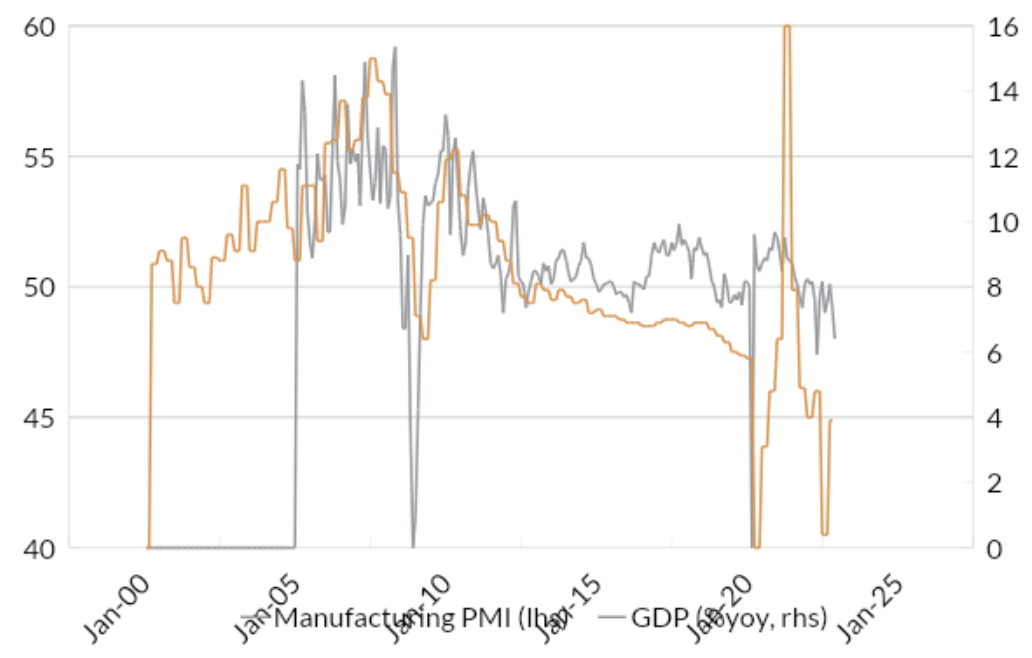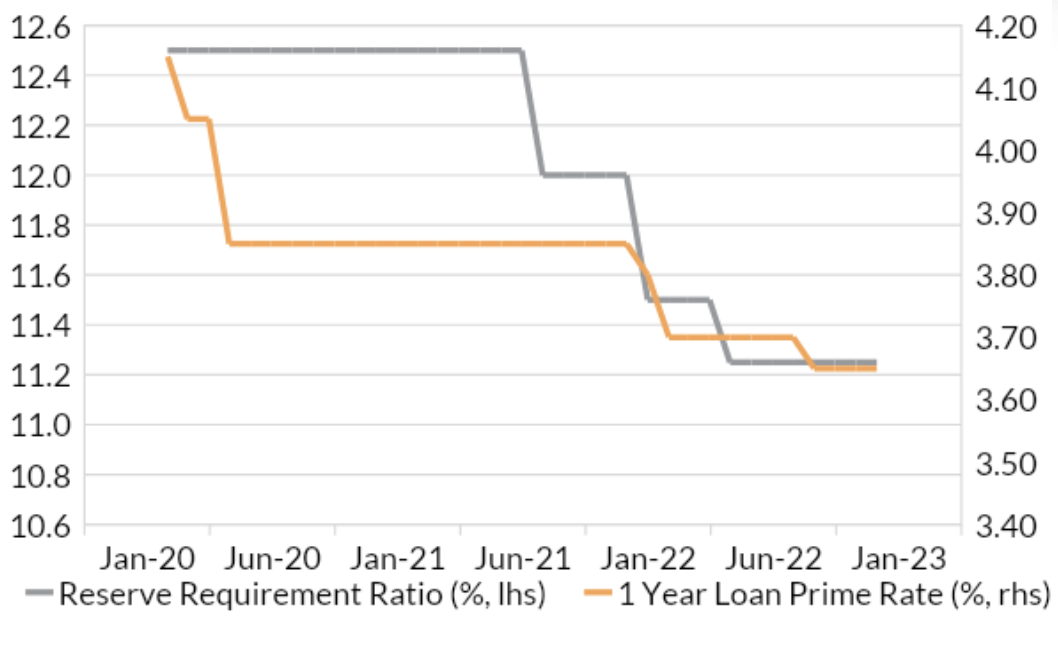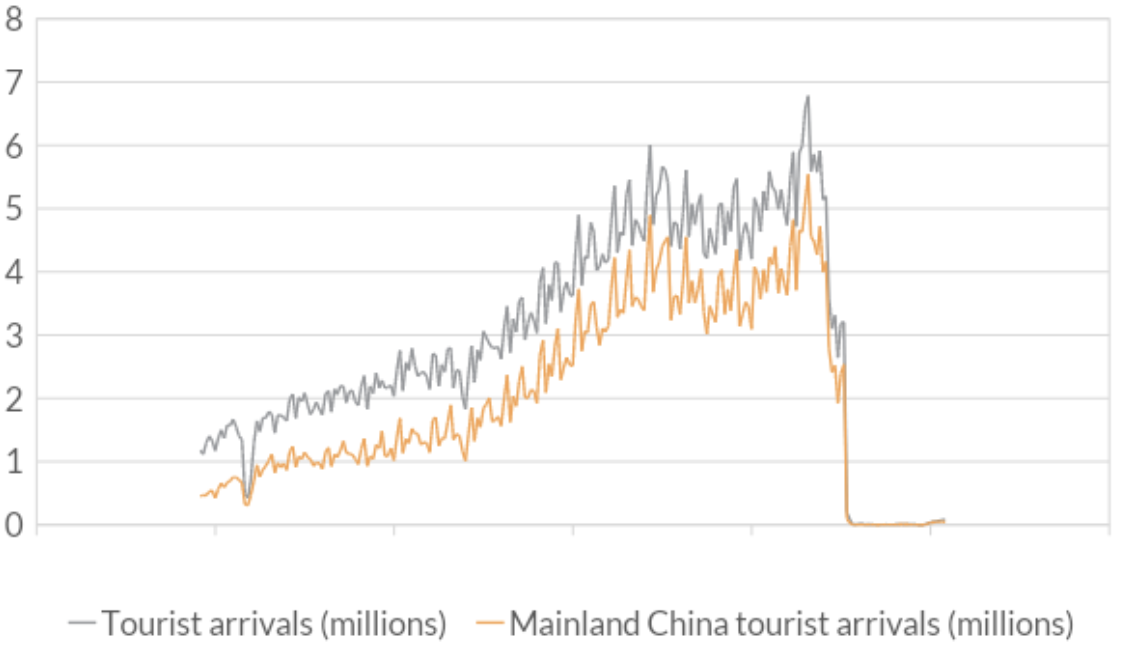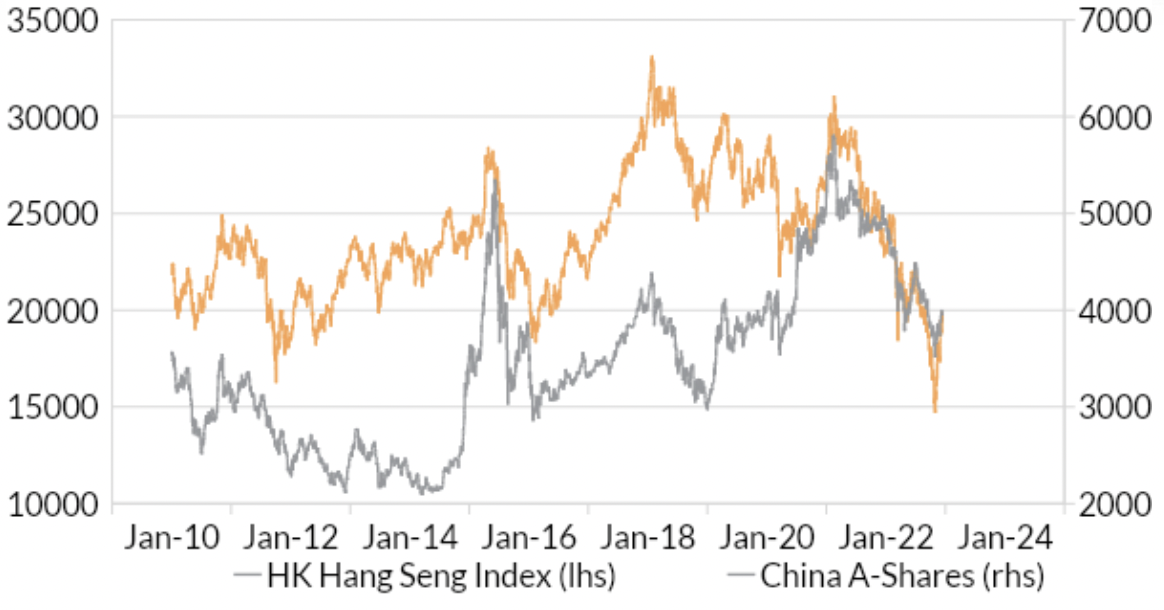Why China will help your portfolio in 2023
In December, I visited Hong Kong for the first time since 2020. Until 2020, Hong Kong had been my home for almost seven years, where I had worked with some of the biggest sovereign wealth funds and real asset owners in the world.
Hong Kong faced challenges before COVID-19 struck. The protests in 2019 had an epicentre out front of my small apartment in Causeway Bay. From there, I watched as the economy ground to a halt, schooling stopped, and we all wondered what the future would bring.
The recession bit Hong Kong hard. And COVID-19 came hot on the heels of the protests. China’s zero-COVID policy lay across Hong Kong deepening its recession. China itself has been in recession for most of 2022.
In October last year, I highlighted that China was reopening. I expected the Hong Kong-mainland borders to reopen and for that to be a catalyst to end China’s recession. As I was in Hong Kong in December, China’s rollback of its zero-COVID policy and the knock-on effects for Hong Kong’s own reopening became evident. Despite western media remaining sceptical, it became increasingly clear that China would support its reopening at all costs. And that means China’s equity market has considerable upside through 2023.

China was in recession through 2022
China’s recession through 2022 reflected the widespread lockdowns imposed by China’s zero-COVID policies. Chart 1 shows that the manufacturing PMI spent most of its time in contractionary territory, while GDP growth sank below 3.0%.
Chart 1: China suffered recession through 2022

China’s monetary and fiscal policy became outright supportive
In early December, I shared a wire describing how China’s authorities used the policy headroom they had to ease monetary and fiscal policy. This helped prevent a much worse recession. But it was never going to be enough on its own to drive a recovery. A true recovery could only be led by reopening.
Chart 2: China eased monetary policy progressively through 2022

Focus on the internal border
I wrote in October last year that reopening in China was already happening. When I arrived in HK in December, it was obvious that for the most part, Hong Kong was open for business.
Over my week in town, I spoke with China analysts, fund managers and employees at Chinese state-owned enterprises, and it was obvious that Chinese authorities had well and truly moved beyond zero-COVID. It was no longer mentioned by any serious mainland analyst, nor by any Chinese authority.
But the real reopening to keep an eye out for is the internal border. That will bring Chinese nationals back to Hong Kong. It will stoke tourism, capital and goods flow between the second-largest economy in the world, and Hong Kong, the gateway to that economy. And when that happens, China’s economy will roar out of recession.
Pent-up demand is coming
The real story for China will be pent-up demand from mainland households. Chart 3 shows how critical China tourism is for Hong Kong. More importantly, tourism is a bellwether for Chinese discretionary demand. I expect that like every country that has reopened, there is a lot of pent-up demand waiting to be unleashed by Chinese households that have had nothing to spend on for almost three years. As the orange line surges higher through 2023, China is going to be leaving recession in the rearview mirror.
Chart 3: Keep an eye on HK tourism to gauge the release of pent-up demand

What does it mean for my portfolio?
Chart 4 shows that Chinese equities collapsed through 2022 as valuations moved to reflect the deep recession in China and Hong Kong. Foreign capital treated China as “un-investable” and western media and analysts were deeply sceptical about the prospects for reopening.
Chart 4: China equities collapsed in 2022, pricing in the recession

But back in December, it was increasingly clear that China was reopening. Policies changed. And pent-up demand being released from China is set to be the big story for 2023. Investors will need to gauge how this will support global growth, impact global inflation, and reprice global assets.
China’s importance will rapidly reverse the concern that China is un-investable, and attract capital into China’s equity market. And we think that will be a critical story through the rest of 2023 - making Chinese equities an important source of alpha for investors.
Never miss an insight
If you're not an existing Livewire subscriber you can sign up to get free access to investment ideas and strategies from Australia's leading investors.
And you can follow my profile to stay up to date with other wires as they're published – don't forget to give them a “like”.
2 topics



